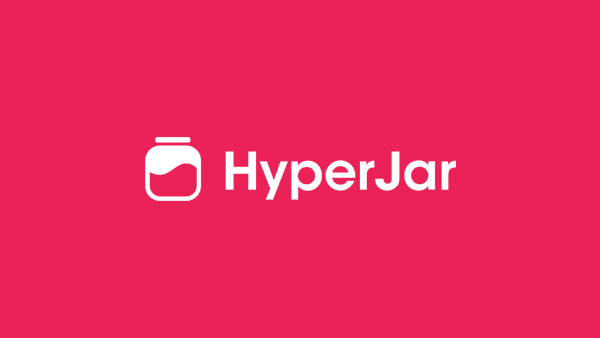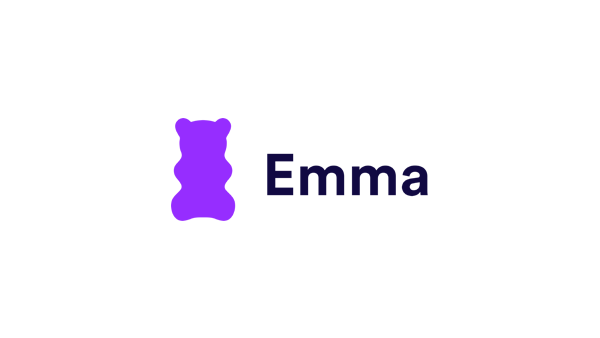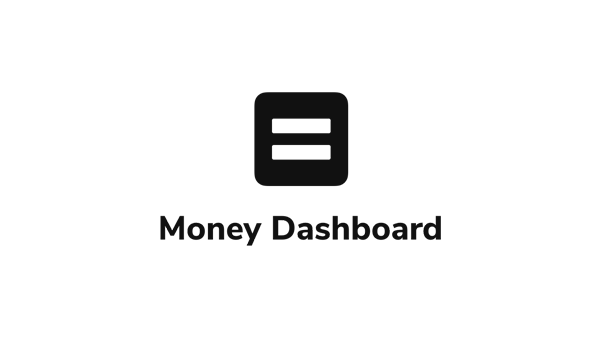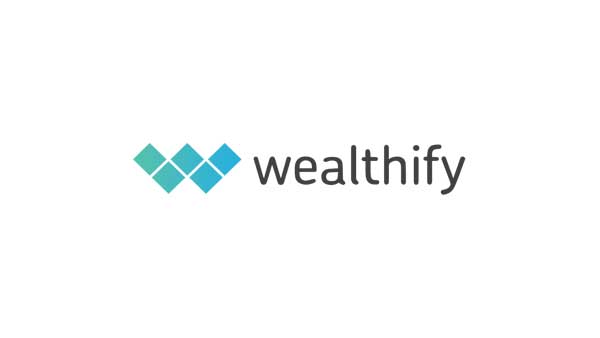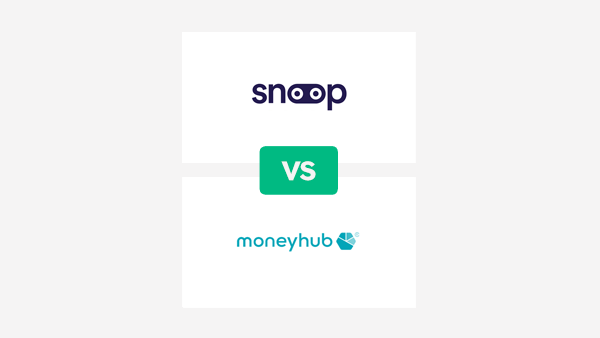
Table of Contents
Moneyhub vs Snoop – At a Glance
| Snoop | Moneyhub | |
| Cost | Free | £0.99/month, £9.99/year |
| Supported Banks | 60+ | 26+ |
| Sell your data? | Yes | No |
| FCA Regulated | Yes | Yes |
| Presentation | Fun, social media style | Business-like |
| Features | Helps you save via suggestions | Many budgeting functions |
About Snoop
Snoop are a recent entrant into the crowded budgeting space, and have a free to use, gamified app, that focuses on finding ways for you to save on bills, subscriptions and more, alongside their budgeting functions.
About Moneyhub
Moneyhub was an early entrant into the budgeting app space, and is backed by a very strong technological back end. Their approach is quite analytical and they support a large number of financial institutions.
Moneyhub vs Snoop – Plans, Costs & Fees
There is a small subscription fee to use Moneyhub. The amount depends on where you make the payment.
When paying Moneyhub direct, the cost is £0.99 per month, or £9.99 annually. However, it is also possible to pay via the Apple App Store, and if you pay via there, then the cost is £1.49 per month, or £14.99 annually. Moneyhub state that the difference is due to the fees for the App Store, and that they get the same amount.
The Snoop app is completely free to use, they have no subscription fees or costs.
How do Moneyhub and Snoop make money?
Moneyhub aim to make money from their subscription fee. Snoop have no fee, and as such they look to make money via selling anonymized customer data, and by recommending products to their customers and receiving referral fees.
Verdict
Snoop is free, but they will sell your data, which could be negative if privacy is a concern. They also will recommend other services regularly, which could be useful, but also potentially annoying if you just wish to budget! Moneyhub do have a fee, but it is very cheap.
Moneyhub vs Snoop – Features
Moneyhub
- Integration – get all of your financial data into one platform
- Spending Analysis – automatic spending analysis on your transactions
- Spending Goals – multiple goals can be set and tracked.
- Nudges – get automatic nudges updating your progress towards goals and with budgets
- Categories – transactions are automatically categorized.
- Real-life Advisors – get financial advice from a live person.
Snoop
- Spending Sorter – The app automatically categorises your spending.
- Payment Hub – every outgoing payment in a single list
- Spending Summaries – daily, weekly and monthly
- Checkers – the checkers analyse spending and suggest savings with your energy, cards, mobile and broadband and Insurance.
- Discount Code Finder – the app searches for discount offers related to your spending
- Money Saving Scanner – find money saving opportunities.
- Mortgage Manager – allows you to compare your mortgage with other deals in the market.
- Look Ahead – the app will tell you on a weekly basis your upcoming outgoings so you can be prepared.
Snoop is a relatively new app, and as such they seem to have a lot of features in development which have not launched yet. You can see these here.
Bank Connections:
Both Snoop and Moneyhub use open banking to connect to your bank, and so, the banks that each app has a connection to, will determine who can use the app. If the product does not support the bank you use via open banking, then you will not be able to use the app.
The apps both have a large number of banks and other financial institutions that they are integrated with, which will cover the vast majority of consumers.
Verdict
In general Moneyhub seem to focus on budgeting features, whereas whilst Snoop also have similar features, they appear to focus more on their ‘checkers’, which focus on your spending in certain areas such as energy bills.
Moneyhub vs Snoop – Safety
Data Security
Both Moneyhub and Snoop utilize open banking technology to access your financial data. This means that they never have access to your login details or passwords, and have only read-only access to your data. Both providers claim to use bank quality encryption of data.
Privacy
Moneyhub charge a subscription fee to use their app, and as such state that they do this so that they do not have to sell your data to make money. Snoop on the other hand, do not have any subscription fees or charges, and they are clear that they do sell anonymized customer data to 3rd parties.
Verdict
It really comes down to privacy. With Snoop they sell your data, whilst Moneyhub do not, so if this is an issue for you, then the choice is clear.
Moneyhub vs Snoop – Presentation
Really the biggest benefit of any budgeting app is the ability to see all of your financial transactions in one place. Open banking has made it far easier for apps to do this, and now there are many apps to choose from.So, with so many budgeting apps around, it can often come down to the way that they present their app, and what elements they focus on.
Moneyhub has a more sober approach – that is presented as very much a budgeting solution that replaces the old way of using Excel spreadsheets. They focus on the budgeting elements as priority, with few additional extras.
Snoop on the other hand, have a much more gamified, social media style, with chatbots, and other elements that are designed to make the budgeting process more fun. They also offer far more in the way of tips on way to save, and directing users to third party products.
Verdict
It really depends on what you like and what you are used to. If you are looking for a more interactive, fun approach, then Snoop is probably better for you, whilst Moneyhub gives users a more analytical and business-like feel.
Snoop vs Moneyhub – FAQ
How does Snoop app make money?
As Snoop is a free to use app, they need to make money somehow. They do this in 2 main ways; firstly, they sell anonymized customer transaction data to third party companies (this may be a concern to users who are privacy conscious). Secondly, Snoop will analyse your transactions, and then recommended alternative suppliers for bills, insurances and more. If you choose to change to these, Snoop would receive a fee.
What is the alternative to Moneyhub?
As we discuss in this comparison, Snoop is one alternative to Moneyhub if you want to get a budgeting app. For more options, check out our complete guide to the best budgeting apps.
Moneyhub vs Snoop – Verdict
Moneyhub has been offering their budgeting product since 2014, and so their budgeting tools will have been extensively tested with actual customer data. Snoop only launched in 2020, and as such, there are several features of their app that are still in development. The biggest difference between the apps is one of style. Moneyhub is more old school, whereas Snoop is more ‘fun’. It could come down to the targeting i.e. Moneyhub targeting an older user, and Snoop a younger.
However, in reality there are probably many older people who like the fun approach and younger people who would prefer a more ‘boring’ app!
Articles on the wiseabout.money website may contain affiliate links. If you click these links, we may receive compensation. This has no impact on our editorial and any money earned helps us to continue to provide the useful information on our site.

